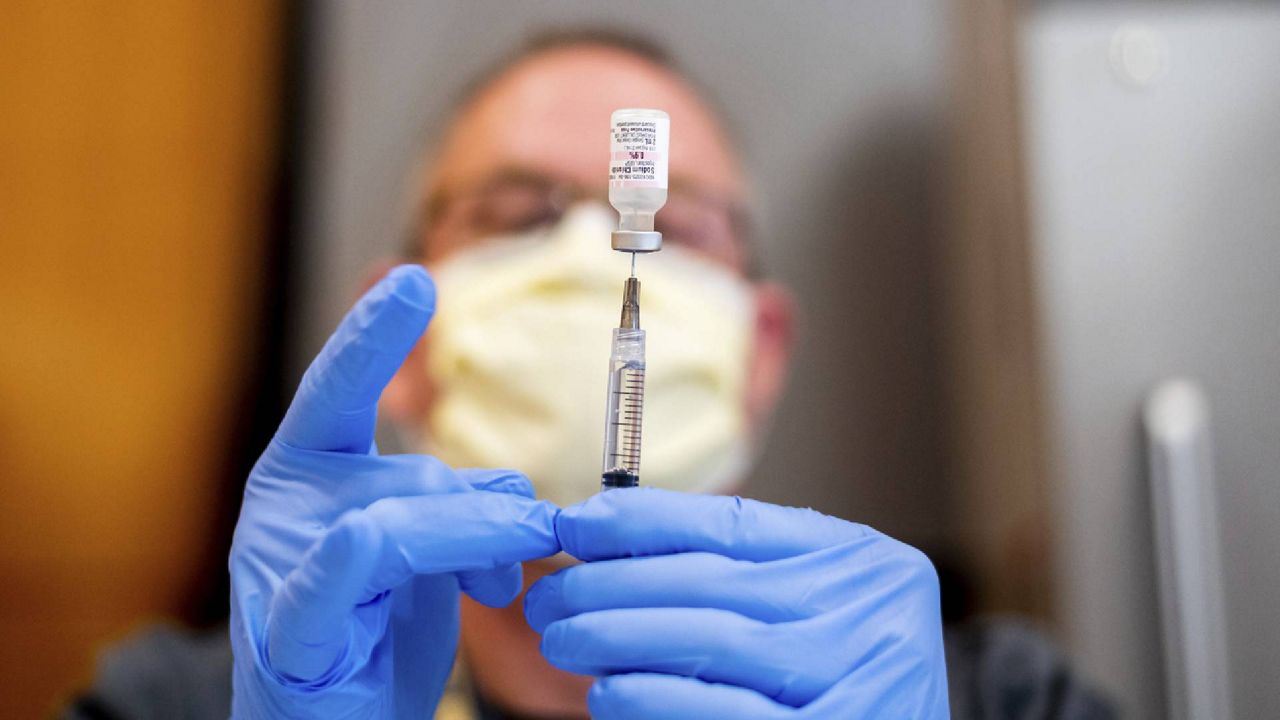Members of the White House COVID Response Team said they’re working to expand national efforts to identify and trace three coronavirus variants, the most recent one traced to South Africa and first identified in the U.S. on Thursday.
The variants — while normal for a mutating virus that’s still infecting millions across the globe — seem to spread more easily, and it’s possible that vaccines are slightly less effective against them.
On Friday, Dr. Rochelle Walensky, Director of the Centers for Disease Control and Prevention, said U.S. agencies have “dramatically” scaled up their surveillance efforts to identify and track the variants in recent days.
“We are now asking surveillance from every single state, at least 700 surveillance strains per week,” Walensky said. “And we have seven collaborations across universities to scale up surveillance to the 1000s per week, so that we can get a foothold.”
Both Dr. Walensky and President Biden's chief medical adviser Dr. Anthony Fauci highlighted the need to continue boosting vaccinations across the U.S. to stop the spread of variants, since the virus can only continue to mutate quickly if it’s allowed to spread.
"Getting people vaccinated as quickly and as efficiently as you possibly can will always be the best way to prevent the further evolution of any mutant," Fauci said. "Because when you do that, you prevent replication, and replication is essential for mutation."
The U.S. is now vaccinating an average of 1.2 million people per day, according to the response team, but officials say they hope to increase that number in coming months. President Biden has set a goal of vaccinating 100 million Americans in the first 100 days of his presidency.
Andy Slavitt, the White House’s senior adviser for the COVID response, said FEMA is beginning to provide additional support to states for vaccination centers and staffing. This week, the Department of Health and Human Services also amended an emergency act to broaden the definition of who is qualified to administer vaccines.
On Friday, Dr. Fauci, Biden’s top medical adviser, said that the Pfizer and Moderna vaccines are still effective in combating the new virus variants, though the vaccine-induced antibodies may be slightly weaker against the mutations.
“This is a wake up call to all of us,” Fauci said. “All of us that are in this together will have to be nimble, to be able to just adjust readily, to make versions of the vaccine that actually are specifically directed towards whatever mutation is actually prevalent.”
The variant first discovered in South Africa was found in two people in South Carolina Thursday. The cases were unrelated and neither had traveled recently.
The U.S. Centers for Disease Control and Prevention has reported at least 315 cases of the U.K.-discovered variant in the United States. Those reports have come from at least 28 states, and health officials believe it could become the dominant strain in the U.S. by March. That variant has been reported in at least 70 countries.
The first U.S. case of the variant found in Brazil was announced earlier this week by health officials in Minnesota in a person who recently traveled to the country. That variant of the virus has popped up in more than a half-dozen countries.



